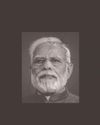
At breakfast the other week, I noticed a bulging lump on my son's neck. Within minutes of anxious Googling, I'd convinced myself that he had a serious undiagnosed medical condition-and the more I looked, the more apprehensive I got. Was it internal jugular phlebectasia, which might require surgery? Or a sign of lymphoma, which my father had been diagnosed with before he died? A few hours and a visit to the pediatrician later, I returned home with my tired child in tow, embarrassed but also relieved: The "problem" was just a benignly protuberant jugular vein.
My experience was hardly unique. We live in an era of mounting health worries. The ease of online medical self-diagnosis has given rise to what's called cyberchondria: concern, fueled by consulting "Dr. Google," that escalates into full-blown anxiety. Our medical system features ever more powerful technologies and proliferating routine preventive exams-scans that peer inside us, promising to help prolong our lives; blood tests that spot destructive inflammation; genetic screenings that assess our chances of developing disease. Intensive vigilance about our health has become the norm, simultaneously unsettling and reassuring. Many of us have experienced periods of worry before or after a mammogram or colonoscopy, or bouts of panic like mine about my son's neck. For some, such interludes become consuming and destabilizing. Today, at least 4 percent of Americans are known to be affected by what is now labeled "health anxiety," and some estimates suggest that the prevalence is more like 12 percent.
This story is from the June 2024 edition of The Atlantic.
Start your 7-day Magzter GOLD free trial to access thousands of curated premium stories, and 9,000+ magazines and newspapers.
Already a subscriber ? Sign In
This story is from the June 2024 edition of The Atlantic.
Start your 7-day Magzter GOLD free trial to access thousands of curated premium stories, and 9,000+ magazines and newspapers.
Already a subscriber? Sign In

Apocalypse, Constantly
Humans love to imagine their own demise.

A Palestinian American Sex and the City
Betty Shamieh's debut novel is a rebellious rom-com.

Modi's Failure
Why India is losing faith in its strongman leader

The Anti-Social Century
Americans are now spending more time alone than ever. It's changing our personalities, our politics, and even our relationship to reality.

The Wild Charity of Saint Francis
The guide we need, now that kindness is countercultural

Where Han Kang's Nightmares Come From
In her novels, the South Korean Nobel laureate returns again and again to her countrys bloody past.

TROPHY HUNTERS
A GROUP OF CHILDHOOD FRIENDS PULLED OFF A STRING OF THE MOST AUDACIOUS SPORTS-MEMORABILIA HEISTS IN AMERICAN HISTORY. THEN THEY DID SOMETHING REALLY CRAZY.

THE NEW RASPUTINS
Anti-science mysticism is enabling autocracy around the globe.

ARMY OF GOD
AMERICAN CHRISTIANS ARE EMBRACING A CHARISMATIC MOVEMENT KNOWN AS THE NEW APOSTOLIC REFORMATION, WHICH SEEKS TO DESTROY THE SECULAR STATE. Now THEIR WAR BEGINS.

WHAT NOT TO WEAR
The false promise of seasonal-color analysis